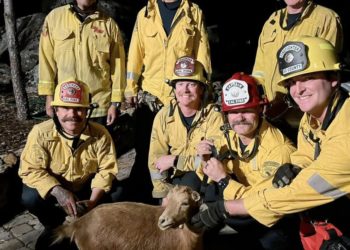THE CONSERVATIVE FRONTIER: Texas and the Origins of the New Right, by Jeff Roche
My first job after graduating from the University of Texas in the 1980s was as a lowly travel aide, carrying the bags of a candidate for the U.S. Senate. That’s how I found myself staring out the window of a single-engine plane, pondering the vast emptiness of West Texas. In the plane with us was a witty populist, Jim Hightower, then the Texas agriculture commissioner. Having grown up in the swampy Texas Gulf Coast, I asked Hightower to tell me about the parched, flat, brown land below us. “That,” he quipped, “is the freakin’ moon.”
In “The Conservative Frontier,” an engaging and thorough political chronicle of West Texas, Jeff Roche, a historian at the College of Wooster, in Ohio, attempts to map the lunar landscape, and explain how an area so desolate, arid and empty produced a political ethos that would come to dominate Texas, and, in time, the entire Republican Party.
I don’t mean to sell the moon short. After all, it has a mighty powerful effect upon the Earth, making tides rise and fall and inspiring centuries of sappy love songs. Likewise, as Roche tells it, the remorseless plains of West Texas contain the headwaters of a mighty current that runs from the John Birch Society to Barry Goldwater and up through Ronald Reagan to the country beyond.
Roche has a name for the West Texas way: cowboy conservatism (and, thanks be to God, he doesn’t aggrandize it with capitalization). Its tenets, he writes, are devotion to individualism, militarism and the free market, and it is “animated by anticommunism and prone to paranoid fantasies,” not to mention “white supremacy and adherence to traditional gender roles.”
That philosophy, Roche argues, arose from the distinct geography of West Texas. The Spanish called the region despoblado, a place where it is impossible to live. That it was to many — except for the Comanche, who were, as the historian S.C. Gwynne has shown in his remarkable “Empire of the Summer Moon,” the most fearsome fighting force in North America. They controlled the region until the 1870s, when a long campaign by settlers and soldiers to wipe out their buffaloes and kill their warriors finally drove them out.
Thank you for your patience while we verify access. If you are in Reader mode please exit and log into your Times account, or subscribe for all of The Times.
Thank you for your patience while we verify access.
Already a subscriber? Log in.
Want all of The Times? Subscribe.
The post First They Drove Out the Comanches. Then They Changed the Country. appeared first on New York Times.




